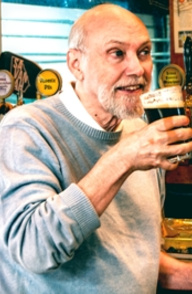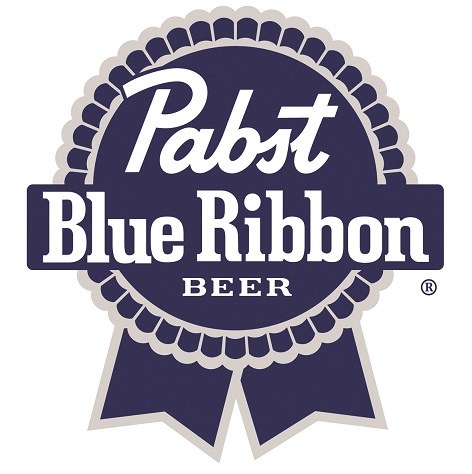Start 14-Day Trial Subscription
*No credit card required

Craft Brewing Investment Trends
In deals that invariably restructure a company, private equity investors bring additional financing and an opportunity for original ownership to reap some profits without giving up all of the stock. Brewery owners are also looking for expertise from private money firms to help manage growth in a business complicated by the challenges of manufacturing, distributing and selling high quality fresh beer. Many of those challenges concern finances. On the other hand, private equity investments often result in another sale within a five-year period.
Because private equity investors are more interested in return on capital and continuity of leadership, they often take a large minority or slight majority ownership. The process of brewing the beer is not expected to change at Southern Tier, SweetWater and Uinta. But only SweetWater’s founder Freddy Bensch retained a majority of the equity in his company, according to a variety of industry watchers.
Bensch emphasized SweetWater, which brews the iconic 420 Pale Ale in Atlanta, will continue current operations after the investment by TSG Consumer Partners. “Operationally speaking,” he said in a statement, “SweetWater will remain unchanged whatsoever, and we will continue business as usual as we strive to keep making the best beer we possibly can. We look forward to the future and taking it to the next level…one beer at a time.”
 But changes on the administrative side are not out of the question in private equity deals. Shortly after the investment from Ulysses Management arrived, Southern Tier founder Phin DeMink hired John Coleman, the former president and COO of Pabst Brewing Company, to be the company’s new CEO. The announcement was made shortly after the investment by Ulysses and was another confirmation that Ulysses has become a majority owner. Johnson is a 25-year veteran of the U.S. brewing industry and formerly worked at Anheuser-Busch. He is charged with increasing sales from the current 100,000 barrels a year level at the brewery near Binghamton, New York.
But changes on the administrative side are not out of the question in private equity deals. Shortly after the investment from Ulysses Management arrived, Southern Tier founder Phin DeMink hired John Coleman, the former president and COO of Pabst Brewing Company, to be the company’s new CEO. The announcement was made shortly after the investment by Ulysses and was another confirmation that Ulysses has become a majority owner. Johnson is a 25-year veteran of the U.S. brewing industry and formerly worked at Anheuser-Busch. He is charged with increasing sales from the current 100,000 barrels a year level at the brewery near Binghamton, New York.
Ziebold expects to see more private equity investments in the BA’s Top 50 list of companies.
“I think we’ll see both majority and minority investments,” he said. “I think you’ll see few 100 percent buyouts by private equity. Good private equity is smart enough to know they like some continuity in management and ownership. Private equity or family offices can be good partners for founders looking for partial liquidity and who want to continue in the business.”
Private equity is not the only way for craft brewers to take some profits and continue to brew beer. In 2014, Harpoon Brewery founders Dan Kenary and Rich Doyle sold an equity stake in the brewery to employees under an Employee Stock Ownership Plan. The plan enables employees to purchase 48 percent of the company’s stock. This follows in the footsteps of New Belgium, the pioneer of employee ownership in the craft segment.
In the cases where AB InBev purchases breweries, the object is for the major brewer to handle much of the overhead and administrative activity without too much additional expense while gaining revenue and market share by growing the craft brand.
Although outright purchases by major brewers are an exception to the overall trend, they can have far greater impact. Leinenkugels brand, for example, has become a one million barrel brewer as part of the Tenth and Blake’s Brewing Company owned by MillerCoors. Under new president Dick Leinenkugel the Wisconsin brewer, which has enjoyed success with its shandy style of beers, has set the goal of doubling production to two million barrels.
When AB InBev purchased the Goose Island brand of Chicago in 2011 for $38.8 million, the parent company quickly began brewing some iconic beers like 312 Urban Wheat outside of the Fulton Street Brewery. Both the Leinenkugels and Goose Island brands have become mainstays on supermarket shelves across America due to the strength of the major brewers’ distribution and brewing networks, replacing other beers in this highly sought shelf space.
It remains unclear if Blue Point, located on Long Island, and Bend, Oregon’s 10 Barrel and Seattle’s Elysian will become part of a regional strategy or if AB InBev will brew some of these companies’ beers elsewhere.
All of the recent financial activity in the craft segment serves to confirm that flavorful beer is here to stay. Given the expansion in production in many quarters, it also confirms craft is more of a marketing term than reflective of “hand-crafted” brews.
Under any name, the last five years have been exciting for the flavorful beer segment and not very exciting for traditional American lagers and American light lagers. The next five years are likely to be even more dramatic for the craft segment as well financed, well advised and talented brewers of all sizes continue to seek a larger market share.



